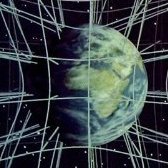Leaderboard
Popular Content
Showing content with the highest reputation on 11/14/23 in all areas
-
You appeared to cite it. Did you just make that number up? And we’re supposed to take your assertion as fact? If you answered my question, or read what Markus posted, you’d see that such pedestrian speeds are small compared to recession values of distant galaxies. Ignoring it in certain calculations is completely reasonable, e.g. when it’s smaller than uncertainties in the result. If you only know z to one or two digits for z >1 , ignoring a speed with z ~ 0.01 is not a problem, if you understand how significant digits work.1 point
-
It gets very confusing when people edit out their mistakes after 10 people have already discussed the mistakes.1 point
-
I think our language tends to cause a creeping in of dualism when we speak of minds and brains, as if those are separate things that interact with each other. The implication is a false Cartesian split. Rather than use umbrella terms like mind, it seems more useful to look at specific cognitive processes in a neutral monism stance, trying to see how that process, e.g. intending to purchase beer, plays out through neurological operations, physical movements (checking in the cellar and fridge, writing beer on a list, placing money or card in a pocket, etc.), spatial shift, vocalizations to other bodies, etc. The parity principle (Chalmers et al) is a useful one here. Thanks to @AIkonoklazt for bringing that. This moves our understanding away from the mind as a thing that influences other things, and perhaps towards a truer understanding of mind as an array of dynamic processes that extend through the world. One pitfall of having created a memory narrative we call The Self is that we tend to defend it by making it separate from the world. This invites the fallacies of dualism, or at least aspect dualism.1 point
-
I like this part, for a T-shirt or a tombstone. The rest sounds like your microphone wasn't working at the start the joke.1 point
-
Thanks I lost my last response and further thoughts to mathjax the mangler when I was collecting the OP's further questions to reply to. That is on top of the fact that we had had something of a crisis here, chez moi, and a hectic couple of weeks. I see from your link that PhysicsForums and Stack Exchange are also discussing this problem.1 point
-
The OP is not genuine. It is plagiarized from https://www.physicsforums.com/threads/height-of-a-stable-droplet-on-a-perfectly-wetting-surface.1057037/post-6964327.1 point
-
1. How would you define the mind's reality in a way that separates it from its plasticity? 2. What aspects of the mind do you consider to be inherently plastic or non-plastic? 3. How do you reconcile the mind's plasticity with its fundamental nature as a real and influential entity?1 point
-
I think you are forgetting several things here. First and foremost, what we are looking for in cosmology isn’t just an explanation for redshift - it’s a model that can explain all the available observational data in a coherent framework that is compatible with known physics. Of course cosmological redshift is a key data point, but there are other important observations: - the cosmic microwave background and its polarisation - the ratios of heavy and light elements (nucleosynthesis) - the large-scale structure of the universe (filaments and voids) - gravitational wave background (g-waves with wavelengths on the order ~Ly) - acoustic baryonic oscillations - the accelerated expansion rate Among many others. Secondly, whatever model we use in cosmology must be fully compatible with the laws of gravity, since that is the predominant force on large scales. At present, this is General Relativity, which has been extensively tested on solar system scales, and found to be correct within that domain. We’re making a working assumption here that it remains equally valid on larger scales too. Right now, the only model we know of that fits all these criteria really well is the Lambda-CDM model. It’s a valid solution to the gravitational field equations of GR for a certain set of reasonable conditions, and it provides the current best fit for the available observational data. Metric expansion is a natural part of this - it necessarily follows directly from the laws of gravity. This isn’t to say that Lambda-CDM is without its problems - there is a certain tension with some observational data, and there are a few things it struggles to explain at all. That is why a variety of alternative models have been (and continue to be) explored; see here for a very quick overview: https://en.m.wikipedia.org/wiki/Non-standard_cosmology But once all is considered, the Lambda-CDM model still remains the one model that provides the best fit to the largest set of currently available observational data, which is why it is the accepted consensus at present. But as more data becomes available to us, this may well change in the future - the last word is most likely not spoken here, especially since for now we can only observe the universe in the electromagnetic spectrum, and to some limited extent in the g-wave spectrum; the neutrino spectrum is as of yet almost entirely missing, since we haven’t got sensitive enough detectors. We’d expect to find a cosmic neutrino background with very specific properties as well, so this will be an important future test of our models. So there’s a whole lot more going on in cosmology than just light and redshift - you can’t either embrace nor reject any model just on the basis of this alone.1 point
-
My main point is that the mind is what the mind is, irrespective of how anyone conceives of it. I'm not pointing to any particular conception of the mind, physical included. If someone thinks the mind is physical, then okay; I can go with that, for the sake of the conversation. Yes, I can agree that if we define it as something that is real and has an effect on the world, then the mind could be considered tangible. This excursion was an exercise in untangling the conflation of two concepts- The reality of the mind which was my focus, and its "non-plasticity," which I never even hinted at. I assume that you're asking for speculation and not theory. Here is my educated guesses in order: If we're just going by physical evidence, then the answer appears to be "no." This is from something I've written somewhere: One way this could be interpreted is that even within a single individual animal, the mind is unique at every instance of physical operative time. The common denominator of a term in all of its uses is in its definition https://www.merriam-webster.com/dictionary/mind This is why we must be absolute sticklers for definitions, and why we should not create new meanings when few would correctly use and most would just misinterpret (esp. "technical meanings" such as "learning" in "machine learning" or even "intelligence" in "artificial intelligence"; I can go very much in depth into this as in write an entire article but maybe elsewhere) I wouldn't say "mirror image." However, minds exist even if not in isolation. ("Can minds exist in isolation" is some other topic altogether) Minds have a subjective character that's partially epistemically locked from externality. Here's the old question of "Do you know exactly what it is like to be me?" (okay now I realize that the item #1 should include "it's subjective in character")1 point
-
@AIkonoklazt @iNow argues that the mind is not a tangible entity, while you argue that it is, correct? iNow's main point is that the mind is constantly changing and adapting, and that this ability to change is what allows us to learn and remember. Your main point is that the mind is a product of the brain, which is a physical organ. The brain is constantly changing and adapting, and this ability to change is what allows us to learn and remember. If the mind were a completely separate entity from the brain, then it is unclear how it could be affected by the brain's plasticity. However, if the mind is a product of the brain, then it is possible that the brain's plasticity could also affect the mind. The use of the pronoun "it" to refer to the mind is also a point of contention. Right, If the mind is not tangible, then it is unclear what "it" is referring to. However, it is possible to use "it" to refer to the mind in a metaphorical sense, just as we might use "it" to refer to a computer program or a piece of software. Both of these points are valid. Ultimately, I think, the answer to this question depends on how we define the term "tangible." If we define it as something that can be seen or touched, then the mind is not tangible. However, if we define it as something that is real and has an effect on the world, then the mind could be considered tangible. The debate over the tangibility of the mind is a whole other debate, and there is no easy answer. Ultimately, the goal of any discussion should be to understand each other better, not to change each other's minds. If you both can keep this in mind, you may be able to have a more productive conversation.1 point
-
Which part of my response to him would you like me to elaborate?0 points
-
The difference from one moment to another in the chemical bonds of the dna is exclusive to brain tissue and necessary to move the dna around From that viewpoint the universe has a beginning and end if you're of the mind that it is spheres resulting from Murphy's Law. The spontaneous creation, or LCDM, is much more provocative because it implies a creator in many a mind.-1 points
-
Move those somewhere in business or ethics-1 points
-
If the solar system is moving around the center of the milky way at a speed of 222 km/s and the galaxy Andromeda is coming closer at a speed of 120 km/s, how can we say that the movement around the milky way should be safely ignored while the movement of Andromeda is very important? Something is wrong here. Are these effects being ignored on purpose to sustain the current model of the universe? If course, if we cannot detect a redshift caused by movements within our galaxy, why should we suppose that movements of galaxies far away should be responsible for their redshift?-1 points
-
So because it is a tangential motion we are allowed to ignored it, that´s interesting. Because even in a tangential motion the linear speed can be between 0 and 1 according to the angle, multiplied by the 222 km/s, but that of course does not matter. I have already explained many times how this is related to expansion, but of course only I should be confused. So we are actually riding a carousel towards Andromeda but some smart and "not confused" guys prefer to interpret that as Andromeda beeing on a collision course with the milky way while the motion of the carousel of 222 km/s can definitely be ignored. Very nice, I love modern science! It all makes a lot of sense. I think that in about 80 million years, Andromeda will be redshifted when it is behind us, so the next civilization with telescopes will consider that Andromeda was always moving away from us. lol-1 points
-
If one knows the physics He can do things with graphical coordinates that can tool the microrobotics that control the program-user interface to do the right moves. I've demonstrated that motion can be just as accurate as a UR3 if I'd had more time to disassemble the device "If I have C=1 and A=<1 anything I do has a small probability of falling onto an exact degree. .99^2 + B^2 = 1, B=sqrt(1-.9801)=0.14106735970. sin(1deg)=.01745240643, for what I just got 1/x=.01745/0.14107=0.1237 so 1=0.1237x, so x=1/0.1237=8.08407437348deg". Keeping me at a disadvantage won't do you any favors in the long run.-1 points
-
The entire "dispute" was regarding whether the mind is a tangible entity. As I've already pointed out, to have something tangible suddenly become something not tangible simply by virtue of plasticity of that thing is committing an obvious category mistake. iNow basically has forgotten where the ball went in the tennis match. Everything he said, quoted, and even linked to only supports my point regarding tangibility. Even in the latest reply- He mentioned physical damage, which affects this tangible entity. The plasticity is also how the mind deal with changes in the environment. He doesn't even realize what he's writing, because he uses "it" to refer to the mind. I mean, if it's not tangible then what in the world is this "it" he's speaking of? I just find his responses to be silly at this point. It's going to be damaged the way it's going to be damaged no matter how you conceive it or its damage. It's going to be changed no matter how you conceive the change or how the change happens. It's baffling how I'd have to explain this to anyone.-2 points
-
Free will is overrated. Although people are limited to the realities in which they can accept. Although some try to maintain a good spirit in the hard times and keep an open mind about things Should they be the ones punished? Or should we flip the script? I can't decide-3 points
-
You could fabricate it with an algorithm if you know the physics beneath the physics of the chemical bonds in the dna branches The dangers of an AI are absolute-3 points
-
I like to ask the AI about these topics because the AI has no prejudice: @Clyde so gravity exists because of curvature of space-time and the only proof of space-time curvature is gravity? Clyde AI — 10/19/2023 9:29 PM that's correct. gravity is the result of space-time curvature, and the evidence for space-time curvature is the existence of gravity. it's a bit of a circular relationship. Circular relationship? Lol-3 points










